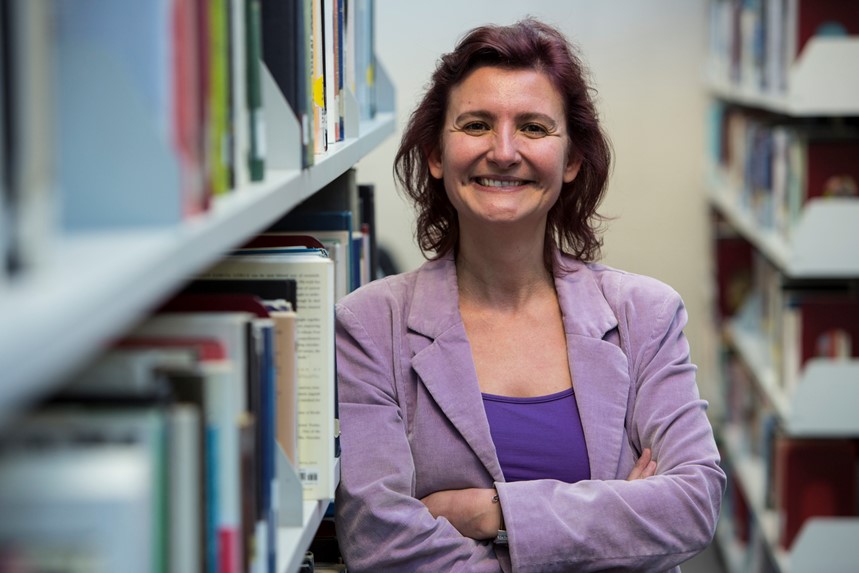 Özlem Onaran is Professor of Economics at the University of Greenwich, and the co-director of the Institute of Political Economy, Governance, Finance and Accountability. She has directed research projects for the UN ILO, UNCTAD, ESRC Rebuilding Macroeconomics, the Institute for New Economic Thinking, the Foundation of European Progressive Studies, the Vienna Chamber of Labour, the Austrian Science Foundation, and Unions21. Her work relates SDG 13 Climate Action, SDG 10 Reduced Inequalities, SDG 5 Gender Equality, SDG 8 Decent Work and Economic Growth.
Özlem Onaran is Professor of Economics at the University of Greenwich, and the co-director of the Institute of Political Economy, Governance, Finance and Accountability. She has directed research projects for the UN ILO, UNCTAD, ESRC Rebuilding Macroeconomics, the Institute for New Economic Thinking, the Foundation of European Progressive Studies, the Vienna Chamber of Labour, the Austrian Science Foundation, and Unions21. Her work relates SDG 13 Climate Action, SDG 10 Reduced Inequalities, SDG 5 Gender Equality, SDG 8 Decent Work and Economic Growth.
My responsibility as a researcher is to formulate policies to tackle the urgent problems of the climate crisis and inequalities and make a meaningful impact to implement these policies working with civil society organisations and policy makers.
Research
Our research shows that to meet the urgent ecological and social requirements, we need to facilitate a move towards a needs-based approach to fiscal policy, avoiding competition between policy targets.
We present a policy mix for a new social contract for a purple green red new deal based on
- Higher public physical infrastructure investment in the green economy,
- Higher purple public social infrastructure spending in education, childcare, health and social care
- Progressive taxation of wealth and income
- Labour market regulations to create decent green and purple jobs.
We econometrically estimate a macroeconomic model to provide evidence based support for these policies. Our results for the UK indicate that taxation of wealth is a particularly effective policy to fund green and purple public investment, while tackling income, gender and wealth inequalities. The targets of green transition, sustainability, development with equity and decent jobs are not competing but complementary.
Green transition programmes need to acknowledge that public investment in social infrastructure is as essential for a green and equitable transition as is public investment in physical infrastructure in renewable energy, public transport, housing. Social infrastructure services are very labour-intensive, and therefore public investment in this area is a vehicle for generating more employment for a given level of output. Furthermore, well-paid care jobs offer an alternative for redeployment of “brown” jobs.
My Future Contributions
The next stage of our research will analyse the role that social policy can play in tackling the multiple crises linked to ecological limits and inequalities that challenge the sustainability of our society, in particular the effects of i) a shorter working week, and ii) universal basic services. The research is part of the COP26 roundtable debates on a Feminist Green New Deal project led by the UK Women’s Budget Group.
A key policy measure to maintain gender-equal distributions in paid work, unpaid work, income, and wealth is a substantial shortening of working time. This is environmentally progressive and by no means unrealistic -compared to the 19th century we are all working part-time today. Digitalization of work, facilitating both working from home and job sharing, makes a substantial shortening of the working week even more feasible today. Shorter working hours, where a given number of hours of employment can be shared among a higher number of employees, ought to increase job creation at a given level of GDP, and thereby support the creation of more jobs. As the marginal worker is usually female, this effect might be expected to reduce gender gaps in both employment and income. Furthermore, shorter working hours ought to allow lower levels of GDP at a given amount of employment, thereby reducing carbon emissions and the overall impact of economic activity on the environment.
To solve the climate crisis collectively we will need to
Mobilize all tools of policy, in particular, 1) invest in public physical infrastructure in the green economy, 2) invest in purple social infrastructure in education, childcare, health and social care 3) progressive taxation of wealth and income 4) labour market regulations to create decent green and purple jobs with shorter working hours
Selected References
Onaran, Oyvat, Fotopolou A purple, green and red new deal after the Covid-19, 6 May 2021, Policy Brief for Women’s Budget Group
Onaran, Ö, Oyvat, C. and Fotopoulou, E. (2019) A policy mix for equitable sustainable development in the UK: The effects of gender equality, wages, wealth concentration and fiscal policy, GPERC Policy Briefs, University of Greenwich, #PB25-2019.
Onaran, Ö. Public Investment in Social Infrastructure for a Caring, Sustainable and Productive Economy, in Economics for the Many, ed. McDonnell, J., Verso, 2018

